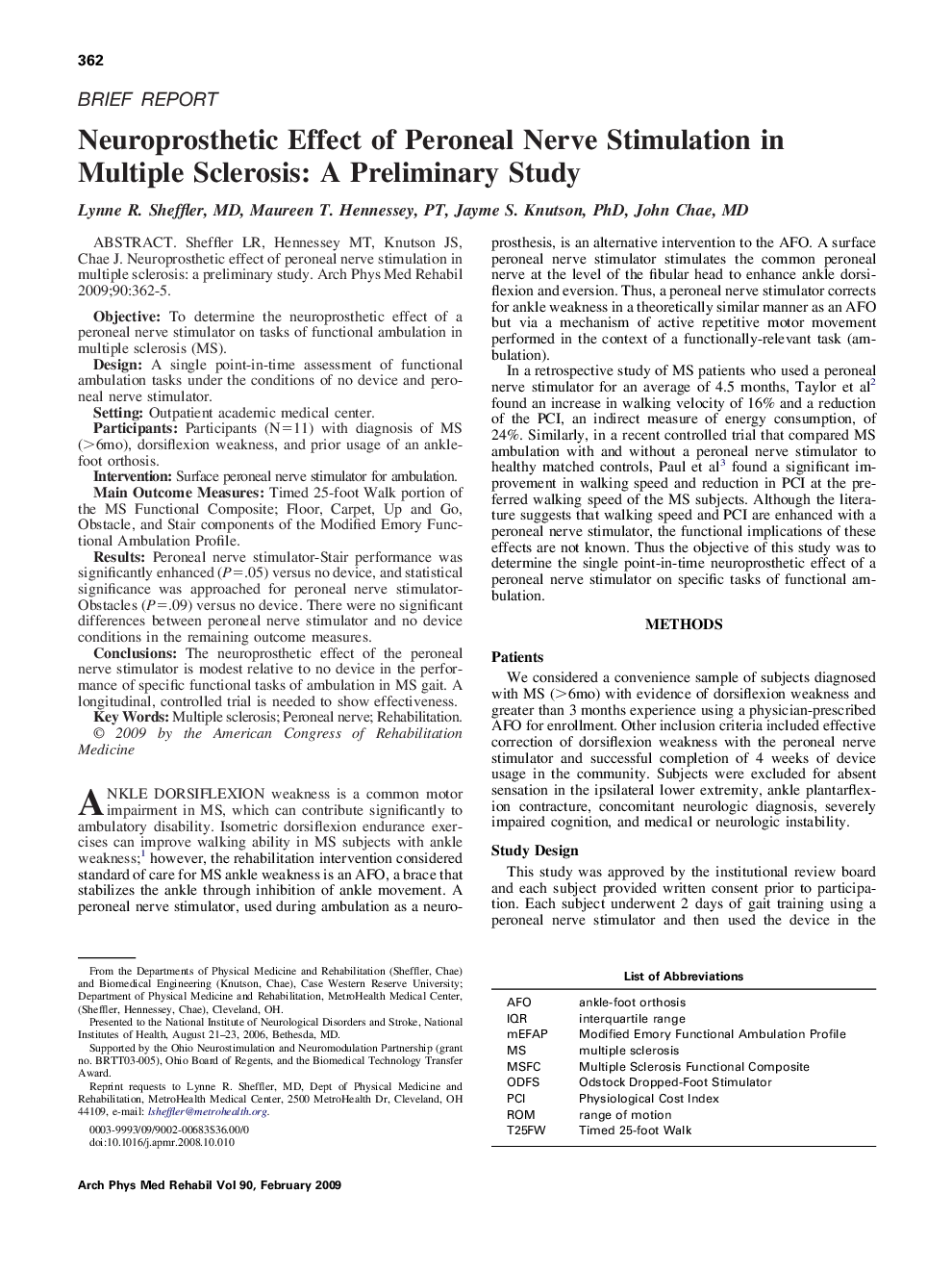| Article ID | Journal | Published Year | Pages | File Type |
|---|---|---|---|---|
| 3451129 | Archives of Physical Medicine and Rehabilitation | 2009 | 4 Pages |
Sheffler LR, Hennessey MT, Knutson JS, Chae J. Neuroprosthetic effect of peroneal nerve stimulation in multiple sclerosis: a preliminary study.ObjectiveTo determine the neuroprosthetic effect of a peroneal nerve stimulator on tasks of functional ambulation in multiple sclerosis (MS).DesignA single point-in-time assessment of functional ambulation tasks under the conditions of no device and peroneal nerve stimulator.SettingOutpatient academic medical center.ParticipantsParticipants (N=11) with diagnosis of MS (>6mo), dorsiflexion weakness, and prior usage of an ankle-foot orthosis.InterventionSurface peroneal nerve stimulator for ambulation.Main Outcome MeasuresTimed 25-foot Walk portion of the MS Functional Composite; Floor, Carpet, Up and Go, Obstacle, and Stair components of the Modified Emory Functional Ambulation Profile.ResultsPeroneal nerve stimulator-Stair performance was significantly enhanced (P=.05) versus no device, and statistical significance was approached for peroneal nerve stimulator-Obstacles (P=.09) versus no device. There were no significant differences between peroneal nerve stimulator and no device conditions in the remaining outcome measures.ConclusionsThe neuroprosthetic effect of the peroneal nerve stimulator is modest relative to no device in the performance of specific functional tasks of ambulation in MS gait. A longitudinal, controlled trial is needed to show effectiveness.
